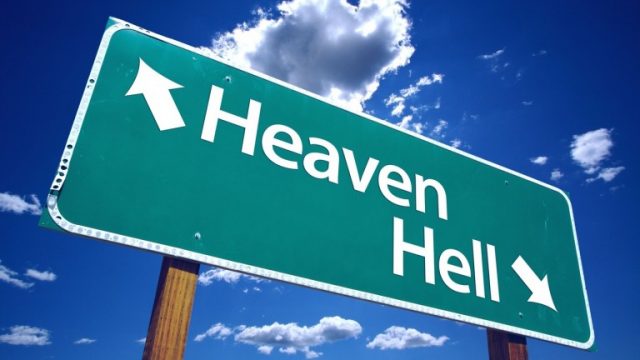Question
Gramps,
Why couldn’t Heavenly Father atone for our sins, rather then Jesus Christ
Una
Answer
Dear Una,
Thank you for your inquiry, it is both insightful and powerful.
There is a lot of substance within this question and I will do my best to break it down so I can convey fully, the essence of our Heavenly Father’s Plan of Happiness.
First of we need to establish who “The Father” and “The Son” are. For that, let me make three points:
1. Article of Faith 1
1 We believe in God, the Eternal Father, and in His Son, Jesus Christ, and in the Holy Ghost.
2. THE FATHER = “The Law”
“A Plan Founded on Law
I am wondering if you folks, you young men and women who are here tonight, are aware of the fact that a plan was laid out for you before you came here—a plan devised by the greatest of all beings, your Heavenly Father, a plan that had in mind your development and growth. That plan is founded on law. Observance to law must become a rule in your life. Any rebellion against law is evidence of weakness. Any observance of law—willing observance—is evidence of a willingness to be led and guided and protected, as we were as little children.
If you start from here to New York in a car, you might have some trouble in Denver. Perhaps there is a blowout. Other dangerous things might happen, and you may wonder whether you are going to make it. You might get discouraged and give up, quit the road, and come back home. If you do, you are foolish, because there is a reward waiting at the other end. What you really should do is make amends and repairs, buy extra parts, learn something about the car you are driving, and then carry on.
In this battle of life, the car in which you travel is your own body, and you should learn all you can about it and then keep it in good order. You will find that there are very definite rules and regulations governing human conduct. In all of our experiences in life, we constantly need the protective influences of those who love us. I said a moment ago that our mothers were guarding us and protecting us, guiding us and helping us across the road. But gradually this parental care and concern is withdrawn measurably, and we are given more freedom to do as we will. We go from place to place with considerable freedom, and yet we are always aware of the fact that our freedom is limited by our conduct. Obedience to law is liberty, and we learn that as we go forward.
On this journey of life you are not headed for New York or San Francisco; you are headed for immortality, eternal life, and eternal increase. When I mention eternal increase, I am referring not only to increase of posterity but to increase of knowledge and the power that comes with knowledge when it is set on fire. I am referring to the increase of wisdom, which is a proper use of knowledge, and to the increase of intelligence, which is the glory of God and will be the glory of man…”
Hugh B Brown (October 8th, 1967 Devotional)
3. THE SON = Mediator (aka Savior)
“Let me tell you a story—a parable.
There once was a man who wanted something very much. It seemed more important than anything else in his life. In order for him to have his desire, he incurred a great debt.
He had been warned about going into that much debt, and particularly about his creditor. But it seemed so important for him to do what he wanted to do and to have what he wanted right now. He was sure he could pay for it later.
So he signed a contract. He would pay it off some time along the way. He didn’t worry too much about it, for the due date seemed such a long time away. He had what he wanted now, and that was what seemed important.
The creditor was always somewhere in the back of his mind, and he made token payments now and again, thinking somehow that the day of reckoning really would never come.
But as it always does, the day came, and the contract fell due. The debt had not been fully paid. His creditor appeared and demanded payment in full.
Only then did he realize that his creditor not only had the power to repossess all that he owned, but the power to cast him into prison as well.
“I cannot pay you, for I have not the power to do so,” he confessed.
“Then,” said the creditor, “we will exercise the contract, take your possessions, and you shall go to prison. You agreed to that. It was your choice. You signed the contract, and now it must be enforced.”
“Can you not extend the time or forgive the debt?” the debtor begged. “Arrange some way for me to keep what I have and not go to prison. Surely you believe in mercy? Will you not show mercy?”
The creditor replied, “Mercy is always so one-sided. It would serve only you. If I show mercy to you, it will leave me unpaid. It is justice I demand. Do you believe in justice?”
“I believed in justice when I signed the contract,” the debtor said. “It was on my side then, for I thought it would protect me. I did not need mercy then, nor think I should need it ever. Justice, I thought, would serve both of us equally as well.”
“It is justice that demands that you pay the contract or suffer the penalty,” the creditor replied. “That is the law. You have agreed to it and that is the way it must be. Mercy cannot rob justice.”
There they were: One meting out justice, the other pleading for mercy. Neither could prevail except at the expense of the other.
“If you do not forgive the debt there will be no mercy,” the debtor pleaded.
“If I do, there will be no justice,” was the reply.
Both laws, it seemed, could not be served. They are two eternal ideals that appear to contradict one another. Is there no way for justice to be fully served, and mercy also?
There is a way! The law of justice can be fully satisfied and mercy can be fully extended—but it takes someone else. And so it happened this time.
The debtor had a friend. He came to help. He knew the debtor well. He knew him to be shortsighted. He thought him foolish to have gotten himself into such a predicament. Nevertheless, he wanted to help because he loved him. He stepped between them, faced the creditor, and made this offer.
“I will pay the debt if you will free the debtor from his contract so that he may keep his possessions and not go to prison.”
As the creditor was pondering the offer, the mediator added, “You demanded justice. Though he cannot pay you, I will do so. You will have been justly dealt with and can ask no more. It would not be just.”
And so the creditor agreed.
The mediator turned then to the debtor. “If I pay your debt, will you accept me as your creditor?”
“Oh yes, yes,” cried the debtor. “You save me from prison and show mercy to me.”
“Then,” said the benefactor, “you will pay the debt to me and I will set the terms. It will not be easy, but it will be possible. I will provide a way. You need not go to prison.”
And so it was that the creditor was paid in full. He had been justly dealt with. No contract had been broken. The debtor, in turn, had been extended mercy. Both laws stood fulfilled. Because there was a mediator, justice had claimed its full share, and mercy was fully satisfied.
Each of us lives on a kind of spiritual credit. One day the account will be closed, a settlement demanded. However casually we may view it now, when that day comes and the foreclosure is imminent, we will look around in restless agony for someone, anyone, to help us.
And, by eternal law, mercy cannot be extended save there be one who is both willing and able to assume our debt and pay the price and arrange the terms for our redemption.
Unless there is a mediator, unless we have a friend, the full weight of justice untempered, unsympathetic, must, positively must fall on us. The full recompense for every transgression, however minor or however deep, will be exacted from us to the uttermost farthing.
But know this: Truth, glorious truth, proclaims there is such a Mediator.
“For there is one God, and one mediator between God and men, the man Christ Jesus.” (1 Tim. 2:5.)
Through Him mercy can be fully extended to each of us without offending the eternal law of justice.
Boyd K. Packer (April 1977 conference – The mediator)
So, to summarize, the reason why The Father cannot atone for our sins is because He is the Law and represents Justice. He is a merciful God however, he is also just and must remain just otherwise he could not be a God. That is why He presented the Plan and two came forward and offered themselves as mediators (atonement). We know Lucifer’s plan was flawed and evil. Jehovah’s plan was accepted because it lined up with Heavenly Father’s plan.I love the way Elder Packer explained the plan and how important it was to have both, a creditor and a debtor.
We must always remember the important roles all three members of the Godhead play in the Plan of Salvation for our own progression.
On a side note, Easter is approaching fast and I am glad this has brought my thoughts back to the reason for the season. Jesus Christ is our Lord and Savior. He is the reason for our existence and is our only salvation. Let’s take a moment and reflect on His life and teachings and be a little more like Him each and every day of the year. Happy Easter!
Gramps







